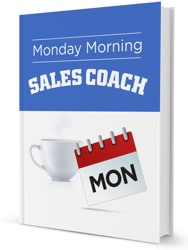“Your Price is Too High”
One of the most common objections salespeople get is about price. Typical comments are:
- “That’s a bit more than we were thinking about ”
- “Your prices are kind of high.”
- “That just doesn’t fit our budget.”
Salespeople tend to be very aggressive in their attempts to overcome price objections, and quickly begin dropping their price to get the sale. And, more often than not, once the price issue has been “resolved,” another objection comes to the surface.
Prospects may use the price objection as an excuse not to buy when, in fact, the real reason is different. Think about it. You’ve probably said to a salesperson on more than one occasion, “That’s more than I wanted to spend” when what you really meant was it doesn’t have the functionality you were looking for, or the style just wasn’t right, or because you had no real conviction that solution will work.
Sometimes price objections are real, and sometimes they’re smoke screens. Your job is to figure it out correctly.
In fact, 68% of salespeople from a wide range of industries thought that price was the customer’s main concern based on a recent survey conducted by The Sales Board. In contrast, when customers were asked what was most important to them in a purchase their response was much different. The majority of people were more concerned with quality, service, and relationship than price.
The first thing you must do when you hear a price objection is to make sure that price is the real issue. So ask the prospect this question:
“I don’t know why this is, but many times when we hear the price is too high, it’s something else in the proposal that you didn’t like, and not necessarily the price. Is that the case here, or is it just the price?”
Now the prospect has two alternatives: he can tell you what the real objection is or he can say that everything else is fine, and it really is just about price. If it’s something other than price, you must deal with that. If it really is price, you should find out how far apart you are, and determine whether or not you can be responsive. Assuming you have some flexibility, ask him what would happen if you were able to reach agreement on price. If his answer is anything other than “we’ll have a deal,” you need to do more qualifying, or consider walking away.
Another option is to simply say that you have no room to negotiate. You might be surprised how often people will say, “Well, I just thought I’d ask.”
Self-Study Assignment: Reflect on how often price objections come up, and how you handle them now. Practice the above script and use it the next time you get a price objection. Or stand your ground and see if it’s a smokescreen.


